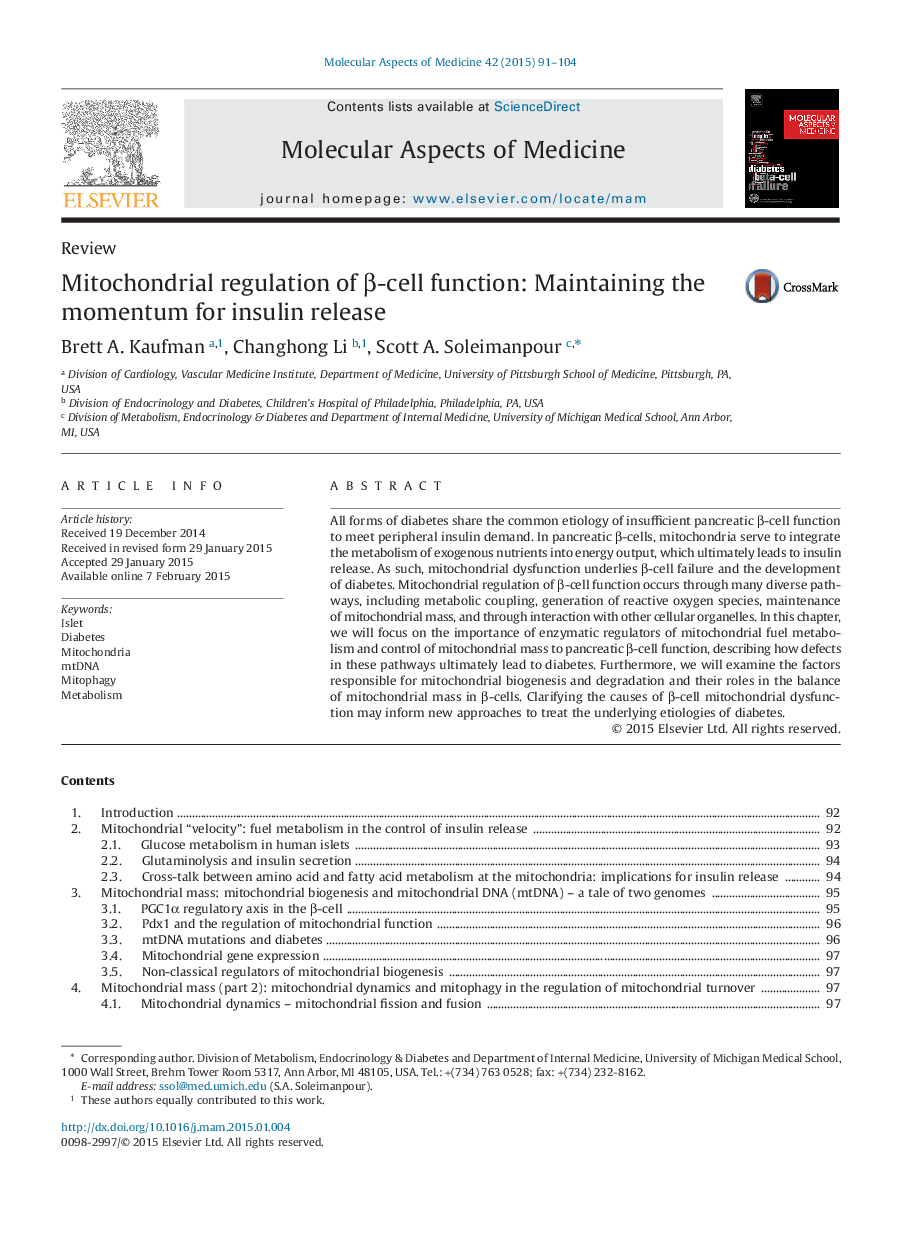| Article ID | Journal | Published Year | Pages | File Type |
|---|---|---|---|---|
| 1995582 | Molecular Aspects of Medicine | 2015 | 14 Pages |
All forms of diabetes share the common etiology of insufficient pancreatic β-cell function to meet peripheral insulin demand. In pancreatic β-cells, mitochondria serve to integrate the metabolism of exogenous nutrients into energy output, which ultimately leads to insulin release. As such, mitochondrial dysfunction underlies β-cell failure and the development of diabetes. Mitochondrial regulation of β-cell function occurs through many diverse pathways, including metabolic coupling, generation of reactive oxygen species, maintenance of mitochondrial mass, and through interaction with other cellular organelles. In this chapter, we will focus on the importance of enzymatic regulators of mitochondrial fuel metabolism and control of mitochondrial mass to pancreatic β-cell function, describing how defects in these pathways ultimately lead to diabetes. Furthermore, we will examine the factors responsible for mitochondrial biogenesis and degradation and their roles in the balance of mitochondrial mass in β-cells. Clarifying the causes of β-cell mitochondrial dysfunction may inform new approaches to treat the underlying etiologies of diabetes.
